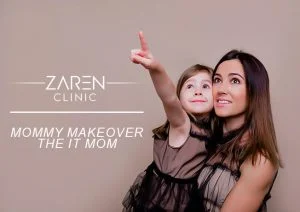Home » Determining the Best Age for Hair Transplant Procedures

Hair transplantation can yield permanent, natural-looking results for individuals who suffer from hair loss or balding. In fact, recent innovations in diagnostic tools, computer-assisted surgical planning, and surgical techniques have further improved both the cosmetic outcome and aftercare for hair transplant patients. The desire to obtain increasingly ideal results has led to a growing number of patients whose balding condition is not presented until they are past the fifth decade of their lifetime, requesting hair replacement. The best age for hair transplant candidates, in conjunction with their hair loss pattern, has forced discussion about whether or not the use of donor hair harvested from the bald-resistant regions via the harvesting technique should continue into the future for hair transplantation exclusively.
But age is certainly wrong as a limiting factor for hair restoration. Although the upper recommended age can vary, there are just no factual reasons for postulating that hair transplantation should not be performed at an older age. During the long history of performing hair transplantations, many hair transplant patients have exceeded their natural lifespan, both the problems that have been foreseen have not occurred. Similarly, hair transplantation has been successfully performed in younger patients for decades. Restrictions to how low the starting age of potential candidates for hair transplantation should be are meaningful from an ethical and surgical point of view. However, if suggested on the basis of inherent potential harvest, they should be reevaluated frequently, because as any limitation they should – logically – change with time.
Historically, age has often been used as a factor to determine if a patient is a suitable hair transplant candidate. High age often indicated limited donor reserves, and younger patients were often regarded as unpredictable, in faces with hair loss may not yet be able to adapt their face and hairline. However, with the increasing numbers of hair transplant patients and the rising awareness of hair loss, this aspect should deserve more attention. As any medical procedure, hair restoration does have specific age factors that may increase the success of the intervention or make the effects of the procedure last longer.
The primary benefit of undergoing a hair transplant at a relatively younger age is to curb hair loss over a long period of time. This benefit should not be obscured by the possible side effect of over-treatment that a young person may experience from having a hair transplant too early. In general, the best results come from performing the best age for hair transplant at a time when the patient is unlikely to experience accelerating hair loss.
People considering hair transplants should take into consideration that hair loss often progresses gradually and the overall appearance and long-term benefits of hair transplants may not be the same in younger people compared to a more mature age. Many recipients of hair transplants believe that the decision on getting them done is best postponed to an older age, but others do not want to or cannot wait until they are older. Surgeons should be able to evaluate for each particular situation what is the better recommendation for each patient. This chapter reviews general recommendations, benefits, and risks of performing hair transplants at different ages.
Ever since both surgical and medical options have become increasingly popular during the past few years, the young patient has raised a dilemma and confusion among interested surgeons. Experts and beginners have found that developing hair lines for patients have become particularly challenging for a host of reasons given their least experienced nature, high assessed amount of grafted hairs, irregular patterns because of unpredicted future hair loss, and unique strong aesthetic requirements. The easiest way of avoiding such difficulties is by delaying the operation until the patient has reached the age of 25-30 years when future much stable hair loss patterns are predicted. The considered fact of being at odds with the raging social phenomenon of health premises has saddened the Real Fake effect that increased by life has accelerated a series of discussions about the matter is too little.
It is a well-established fact that any patient desiring to undergo the best age to get a hair transplant should not be of very young age, as this has been the subject of an internationally acclaimed landmark article titled “Why wait?” published by Dr. Dow Stough in the Journal of Dermatological Surgery in 1996. However, no consensus about a fixed minimum age has yet been established. The members of the ISHRS’s “FUE Committee” therefore felt confident that polling its international members might lead to some insight, if not consensus, on the matter. To this end, a short questionnaire was created and distributed to a representative sample of ISHRS members to collect data on their opinions and practices regarding the patients’ optimal ages, as related to hair transplantation.
It is a great challenge as well as a moral responsibility for the therapist to refuse the patient at inappropriate ages for such treatments. It is better off to err on the side of caution and protect their patients from hasty decisions, which will only lead to disappointment. Hence, it is important to show these often-desperate patients the true eventual results and not offer advice, which might lead them into the unknown hazards. In fact, the greatest hurdle in the treatment of male pattern hair loss is not the development of effective treatment but rather to generate patience in the individuals seeking treatment. The reasons for the aversion of hair transplantation at a young age are not just mere vagaries of fashion or social norms. This will lead to advice of a different sort. Before embarking on any form of treatment, especially at a young age seeking medical help and exploring one’s other hidden talents and improving the condition accordingly is very important and deserves the attention of everyone concerned.
Best age to get a hair transplant has become a very valuable tool in the hands of the hair surgeon. Many people are deriving the benefits of hair transplantation at an earlier stage of hair loss. Many people face only the problem of hair loss without experiencing thinning. But before embarking on the hair transplantation, a careful evaluation of the causes of hair loss is necessary so as to decide whether the individual is falling into the category of pattern balding or other kinds of hair loss. In the case of pattern balding, the age at which the person is seeking treatment is a significant factor. Such a judgment is necessary to derive the best age to get hair transplant procedures. Both too early and much delayed transplantation will produce unfavorable results.
